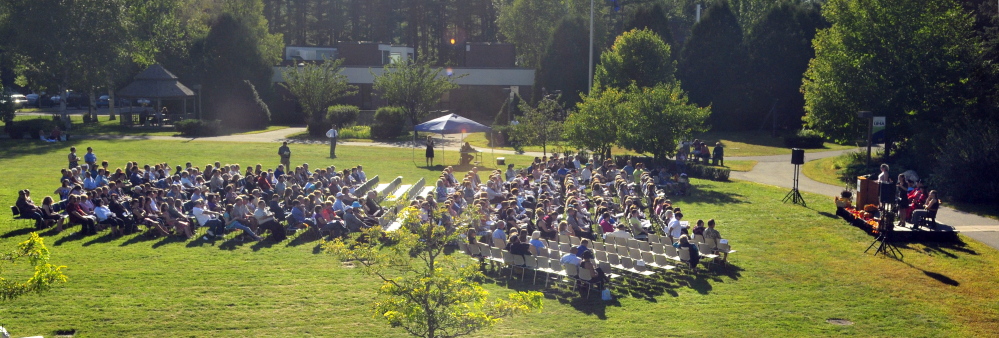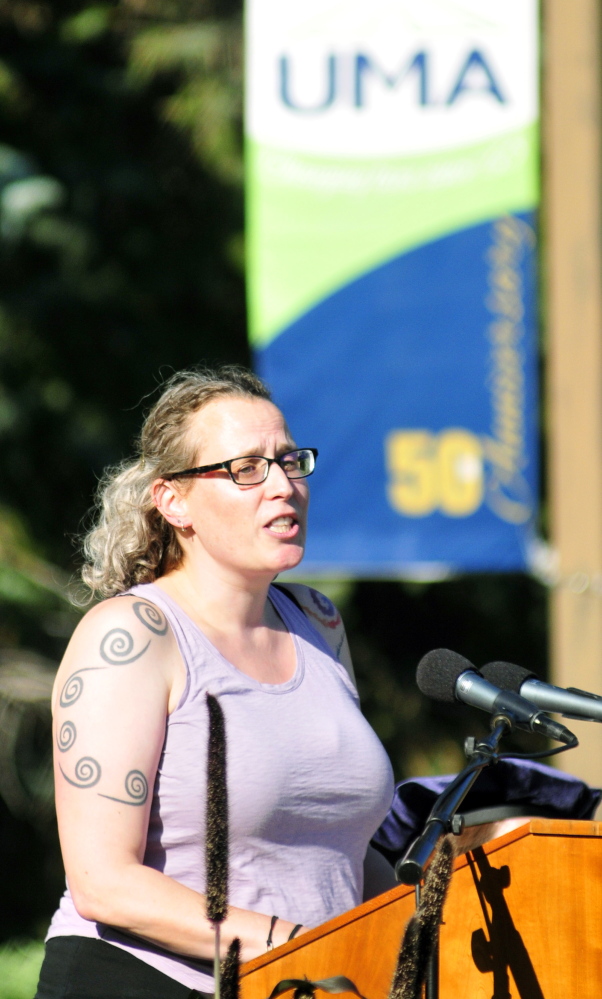AUGUSTA — Solving modern problems such as global warming and social injustice will take more than just scientists or philosophers focusing on their independent specialties. It will take people from a combination of disciplines, working together to blend their knowledge and insight, to get a better view of a problem and find more creative ways to solve it.
That was the message Friday to faculty, students and families at the University of Maine at Augusta convocation. They were called upon to lead the charge in that effort, dubbed “interdisciplinarity,” an emerging area of study at UMA. The commitment to interdisciplinarity will be introduced across academic disciplines this year, and Sarah Hentges, an associate professor of American studies, said it will give students a deeper understanding of the world.
“If the disciplines, the subjects in school, are pieces of fruit in a bowl, then interdisciplinarity is a smoothie,” Hentges said. “In the smoothie, the individual fruits blend together to create a new source of nourishment.”
This year’s convocation celebrated the school’s 50th anniversary, and much of the assembly was given over to introducing interdisciplinarity as the theme for the upcoming academic year, but university officials also took time to recognize students and professors for their work.
Thomas Giordano, associate professor of accounting, received the distinguished educator award, which recognizes someone who understands his or her profession and strives to inspire students’ curiosity.
Richard Nelson, professor of music, was given the distinguished scholar award for the acclaim his music has elicited.
Interdisciplinarity will be key to addressing global issues, including climate change, said Kati Corlew, assistant professor of psychology. Meteorologists are needed to predict short-term weather conditions and climatologists to create models designed to predict long-term trends. Hydrologists, biologists, botanist and ecologists must all work together to see the full effect of climate change and to search for solutions, but it also will take the social sciences and economists, and political scientists, not to mention lawyers.
“We, each of us, with our own different expertise and different interests, even with our different vocabularies and priorities, we are all parts of a whole,” Corlew said.
Craig Crosby can be contacted at 621-5642 or at:
ccrosby@centralmaine.com
Twitter: CraigCrosby4
Copy the Story LinkSend questions/comments to the editors.




Success. Please wait for the page to reload. If the page does not reload within 5 seconds, please refresh the page.
Enter your email and password to access comments.
Hi, to comment on stories you must . This profile is in addition to your subscription and website login.
Already have a commenting profile? .
Invalid username/password.
Please check your email to confirm and complete your registration.
Only subscribers are eligible to post comments. Please subscribe or login first for digital access. Here’s why.
Use the form below to reset your password. When you've submitted your account email, we will send an email with a reset code.